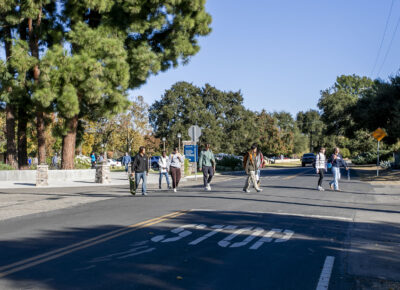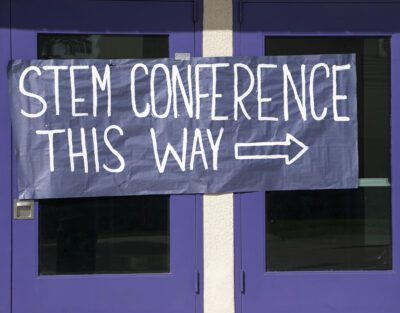I’m a woman over 60 who just went to College of the Canyons. Here’s what I know.
The first time I attended community college I had a weighty backpack filled with textbooks, my Walkman, and carried a wallet with nothing but cash. There was no such thing as a digital textbook, and no one would have any idea what you meant by “remote learning” or “hybrid classes.” It was the 1980s and I lived in a small town before the age of personal computers, and aside from the obvious differences, it was fun to contrast my experiences then – while still in my teens – with the semester I just completed at College of the Canyons.
My hometown community college was an extension of high school in some ways – I kept many of the same friends and got involved in everything imaginable. I joined ASB, became a choir and band member, did a stint as a mat maiden (wrestling), took roles in the annual musicals, and was even elected homecoming queen. Everything was in-person, of course, and events were well attended, with students who were completely engaged.
At least, that’s what I remember.
At the beginning of this year, I enrolled in the spring semester at COC, taking two courses just because I had the time and an interest in the subject matter, but I wasn’t sure what to expect. The vibe wasn’t remotely similar to what I knew, but if I briefly felt like I was in a time machine there were numerous clues that sent me back to the future. For instance, the standout athletes at my small-town community college seemed like local celebrities, but I couldn’t name a single player here. And back in the day, we skanked to the likes of Duran Duran, while this year I sat next to a student whose parents named her after a Duran Duran hit song.
Among other things, I had to adjust to 21st century academia. It took me four visits to the COC office to figure out the registration process and another visit to help me access a parking pass (which now involves downloading an app). I found out the hard way that test taking at home required the “Honorlock” online proctoring system, where the instructor could see AND hear me flipping through notes and talking to myself while answering multiple choice questions. (I apologized to her if she heard me use any salty language and she said it was “nothing compared to some of the other students.”) One amusing experience occurred near the end of the semester while walking to class when I was approached by a campus escort in a golf cart who asked if I’d like a ride. I figured he questioned whether I could walk the distance to class, but he actually thought I was a nurse attending a graduation ceremony on campus.
Aside from a few clubs hosting food booths or a bit of live music in a courtyard, there was very little going on at the Valencia campus over the 16 weeks I attended there. One day a week I would kill several hours between classes relaxing in the Honor Grove area where there are hammocks swinging in the wind and plenty of shade. One day I watched the baseball team practicing in the distance.
If there was little happening outdoors, except for a decent customer base at the coffee kiosk, there was plenty of engagement in the classroom. Students were incentivized to be in attendance and some of them needed good grades to advance their education, competing for limited spots in nursing school programs, for instance. I expected to see more middle-aged moms returning to college, but most of the students I met were half my age (or younger). Obviously, some were fresh out of high school, and a large number were in their 20s and 30s, by all appearances. I was older than the professors as well, but honestly, I couldn’t care less. I was there to learn and observe.
I was impressed by these “kids” (as I called them) who were alert and alive. They shared liberally, particularly about the social constructs of their families and their perspectives about the world. Week after week, they were friendly to me, offering to help me understand the system or physically assist me when I showed up with both arms in slings after breaking my wrists mid-semester (a story for another time, perhaps). One student offered to share her notes with me for the rest of the semester. I felt sorry for them when they were partnered with me for in-class group discussions, and I hid my smile the week one of them told me I was “cool.”
My professors were equally fun to observe, and I got to know them both reasonably well. The classes were challenging, and they brought new information to the fore, but what impressed me the most was that they seemed to truly care about the students. I saw them attempt to connect with these young adults, using cultural references, citing lines from movies, and remaining non-judgmental about attitudes and preferences. They also tried to make a difference in the lives of “the kids” and make an impact on the world at large. This could cut both ways, but I was pleasantly surprised to see them encourage healthier behavior by sharing the long-term effects of choices from alcohol abuse to excessive cell phone use.
In the end, I got what I wanted out of the experience, and I wish more people my age would try a class or two. It was fun to feel like a unicorn at times, and I wanted to learn something new and find inspiration, which I did.
It was so inspiring, in fact, that I’m heading to graduate school next month.
Martha Michael
Canyon Country











